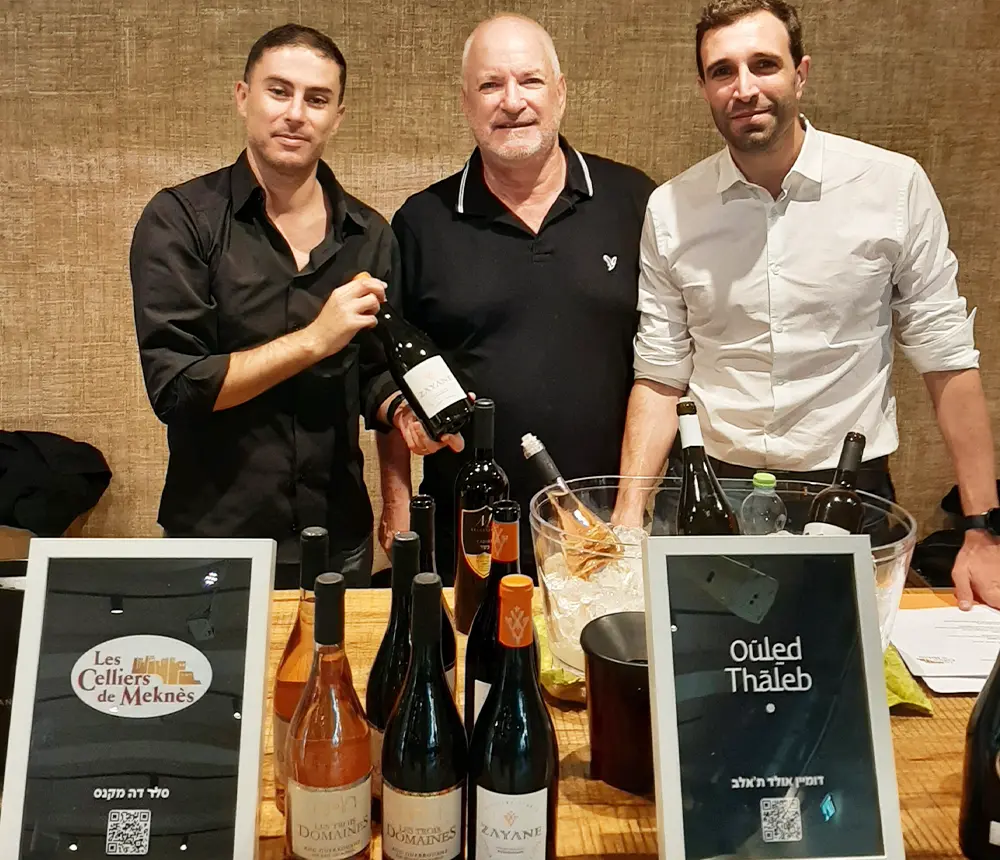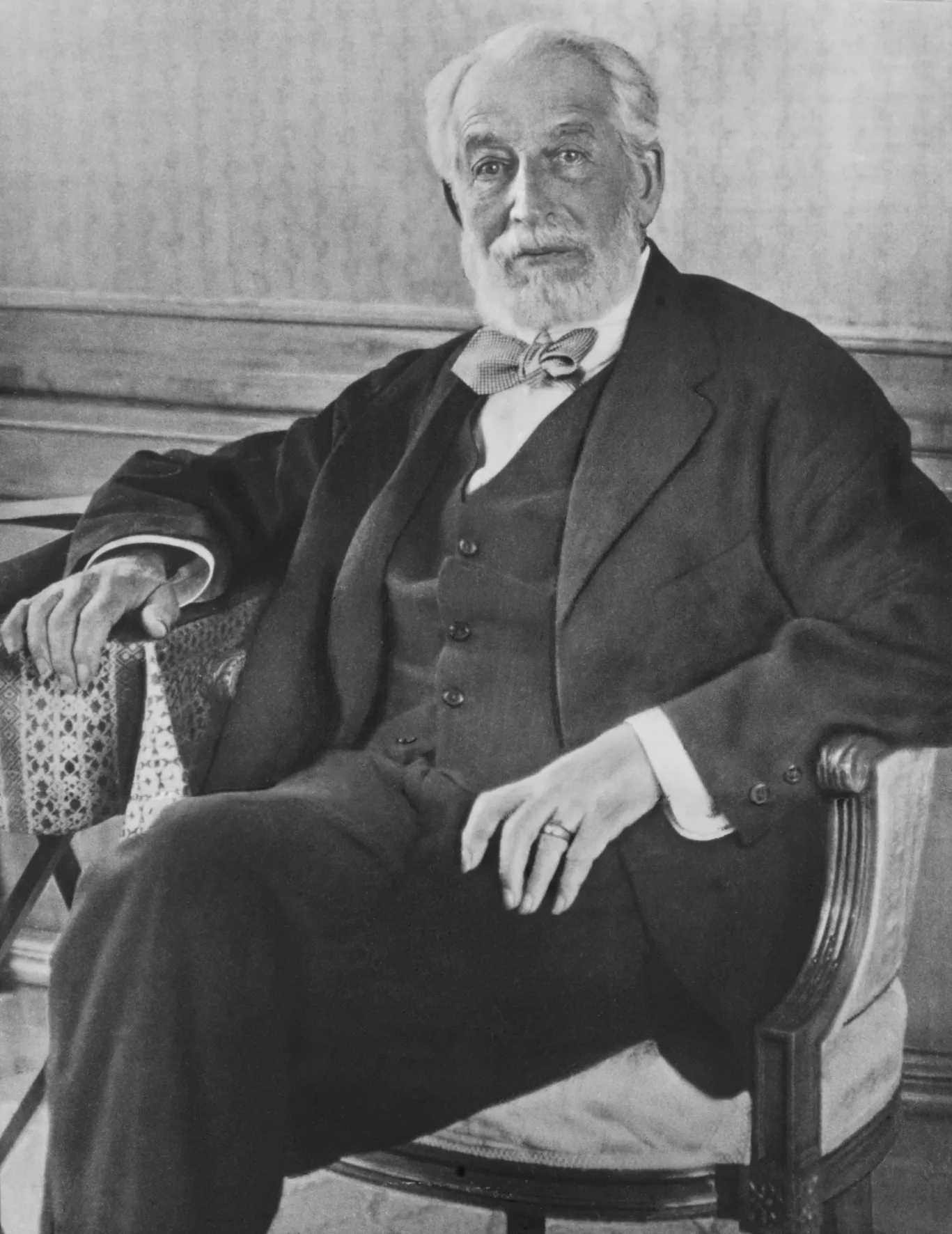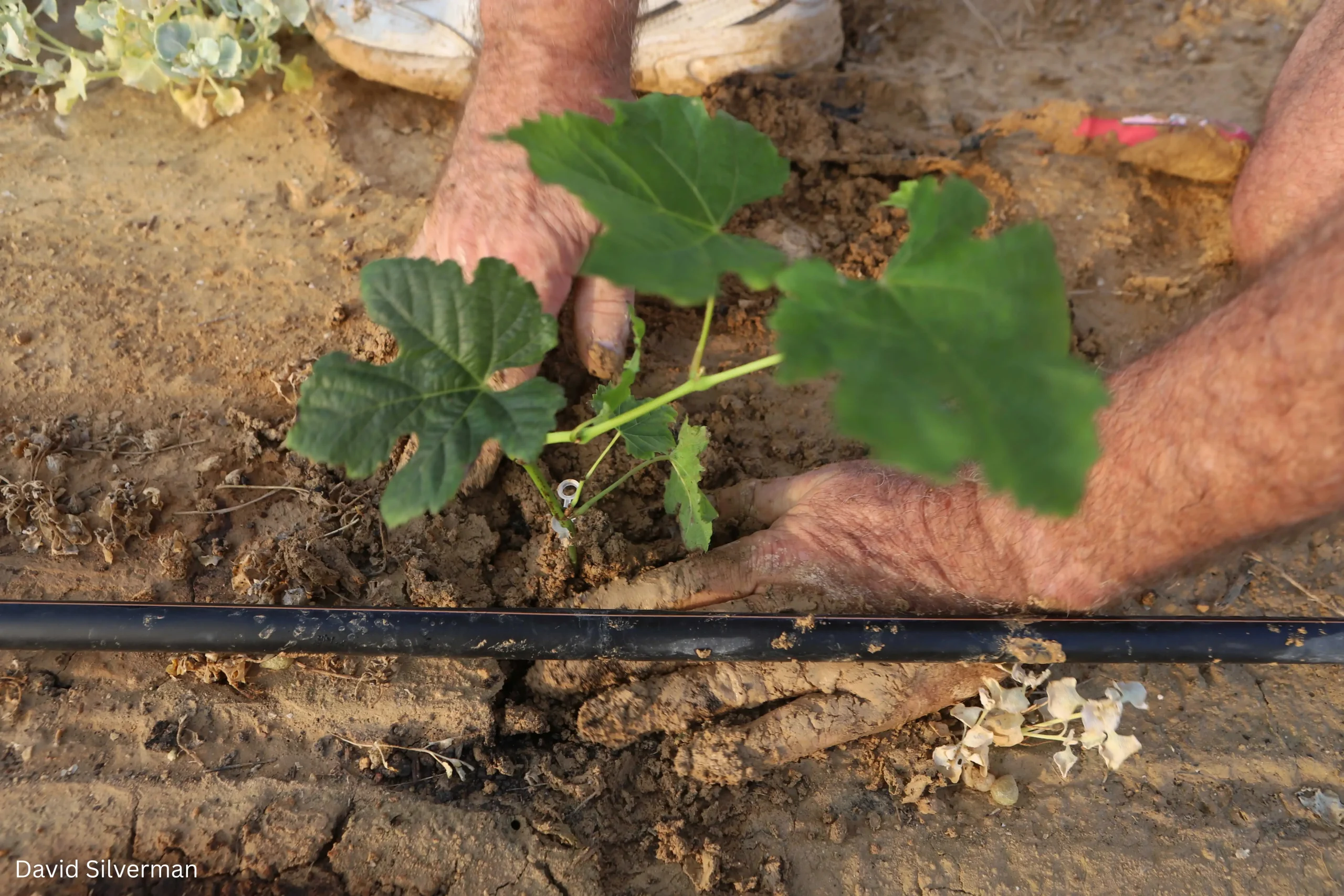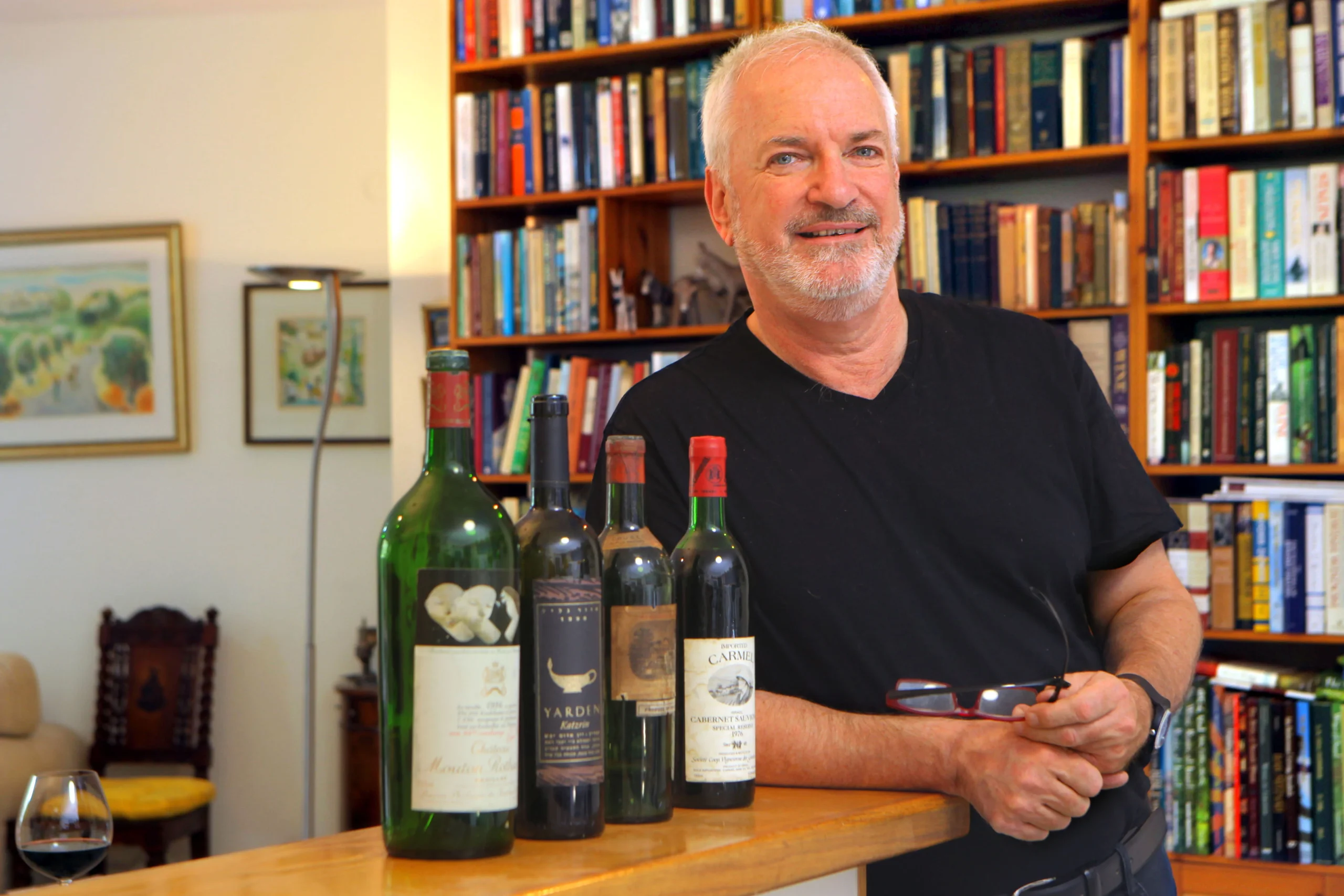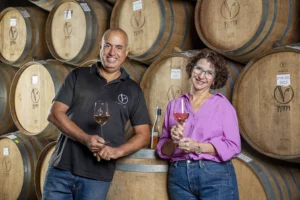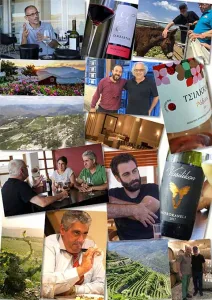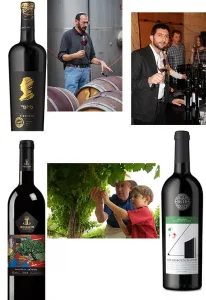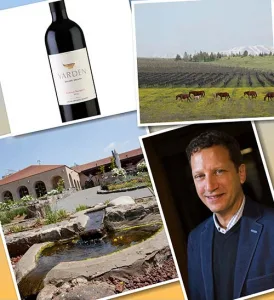There has been tremendous warmth and interest both ways, about the new relations between Morocco and Israel. We all loved watching the World Cup. The incredible success of the Atlas Lions had us all on the edge of our seats. If Morocco can do it, maybe Israel can, although that does seem a dream too far! Anyway, at the same time Morocco was on our minds, we learnt some new Moroccan wines were being imported to Israel. Shaked, Israel’s leading importers and often the pioneers, have listed seven wines from Celliers de Meknes and Thalvin-Domaine Ouled Thaleb, two of Morocco’s most famous wineries. We had the opportunity to taste them and meet the winemaker and export manager, at Shaked’s Annual Tasting. In Israel there is a very sizeable ex patriot Moroccan population, who will be curious to taste wines from the old country. The timing could not be better.
Apart from being a football fan with a fascination about wine, my personal interest is increased by my own Moroccan roots. The Sebags hailed from Mogador, now known as Essaouira. One Solomon Sebag moved from Morocco to London and married a Sarah Montefiore. Their son, Joseph was considered the favorite nephew of Sir Moses Montefiore, and subsequently became his heir. He was the first ‘Sebag-Montefiore’, a family originally centered in London, that spread throughout Great Britain. Sir Joseph Sebag-Montefiore was my great, great grandfather. I am the fifth generation of the family and for what it is worth, the first to live in Israel.
Morocco is a country representing a rich wine history, with un-recognized quality and limitless potential. Quite apart of anything else, the wine regions of the Eastern and Southern Mediterranean are defined by religion. Religion is never far from the surface in these countries. The Cypriots are mainly Christian, the Turks – Muslim, Israelis, of course, are mainly Jewish, while Lebanon is mixed (though the winemakers are mainly Christian.) Morocco is a Muslim country, which by definition is incompatible with wine. However, notwithstanding that, the country produces something between 40-50 million bottles a year. That is a similar production to Israel. Morocco is not a great exporter of wine but the majority of what is exported, ends up in France, which is like an extended home market. It is a pity Moroccan wine is not more known because the wines are good and deserve greater exposure.
Morocco is the quality producer of North Africa. The history is long. Wine has been made there since Phoenician times. In 1912 Morocco became a French Protectorate. Morocco and Algeria became massive producers shipping containers of inexpensive, deep colored wines to France, which were hidden and lost in French blends to bolster their color. Algeria was for a time the largest exporter of wine in the world! In 1956 Morocco became independent and wine took a step or three backwards as the state brandished its Muslim credentials. Thanks to the visionary leadership of the entrepreneurial Brahim Zniber, the planting of vineyards and building of wineries returned, and Moroccan wine, though always quiet and respectful, made a comeback.
In a nutshell, the Moroccan terroir is either based on the high elevation foothills (500-600 meter elevation) of the Atlas Mountain range, or in the Atlantic coastal area. The Atlas Mountains stretch across the countries of the Mahgreb. The Meknes region is the engine of Moroccan wine. The main appellations you will find on a bottle from this region are Guerrouane and Beni M’Tir. Of the other regions that you will most regularly find, Berkane is in the north, on the southern Mediterranean; then there is Zaer near Rabat, Zenata near Casablanca, which are in the north west of the country with Atlantic Ocean influences. The region that breaks the paradigm is Essaouira, on the western coast. Overall there are fourteen registered appellations of origin.
Contrary to what you would think in a hot country, most of the wine (over 75%) is red (not dissimilar to Israel), but the main wines served chilled are roses (nearly 20%). Whites are barely 6% of the production. The grape varieties include classic varieties like Cabernet Sauvignon, Merlot, Syrah, Chardonnay & Sauvignon Blanc; Mediterranean varieties like Carignan, Cinsault, Grenache and Roussanne, and a few exotic additions like Arinarnoa, Caladoc, Marselan, Clairette and Maccabeo.
I think Morocco is most known for its old vine Carignans and Syrahs, two varieties that seem well matched for the climate and terroir. You will also find Moroccan Rose, and the even paler, Vin Gris, as a regular representative of Morocco in export markets. In the popularity of this style of wine, they echo and mirror Provence and the South of France.
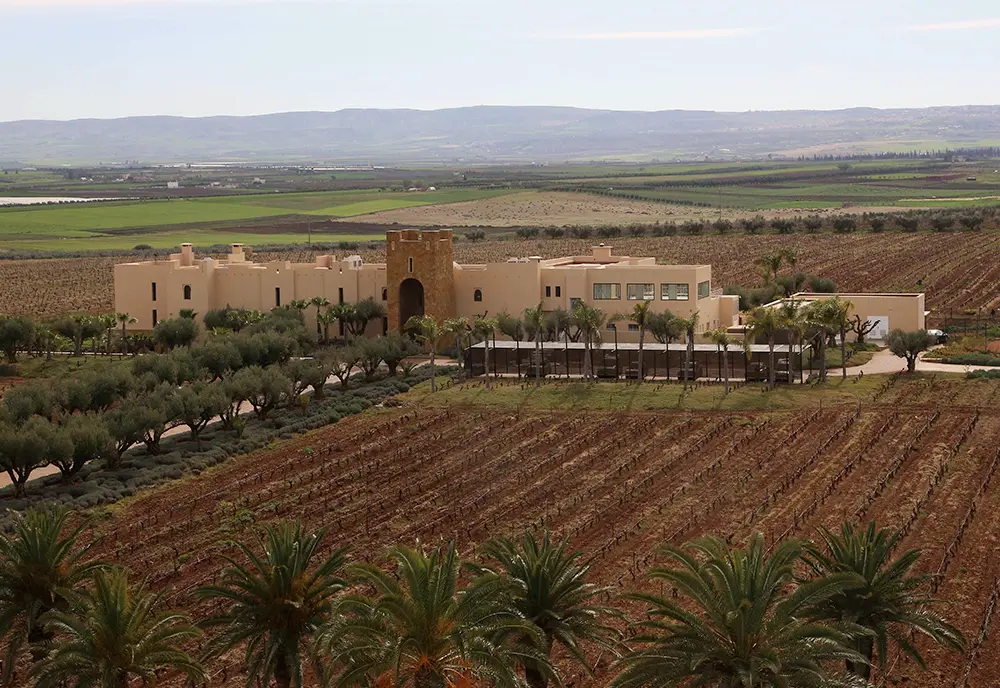
There are three large companies. By far the largest is Les Celliers de Meknes which dominates wine in the country rather like Carmel Mizrahi did in Israel up to the 1990s. It is virtually a monopoly. They were founded in 1964 and were built up by the late and legendary Brahim Zniber mainly in the Meknes area. He was the driving force in the recreation of a Moroccan wine industry, the registering of appellations and in the drive for quality. Their best wines are made at their Chateau Roslane estate, which by all accounts is state-of-the-art.
The second giant is the Castel Group, the largest wine company in France, which invested in Morocco from 1994. They market through the company SVCM with vineyards mainly in Boulaouane and Meknes regions. Their brands include labels such as Larroque, Halana and Bonassia. They seem to mainly offer numerous wines at good value prices, and a large proportion are destined for export. I have in the past tasted L’Excellence de Bonassia and Domaine de Sahari, but I have to admit, none set the pulse racing.
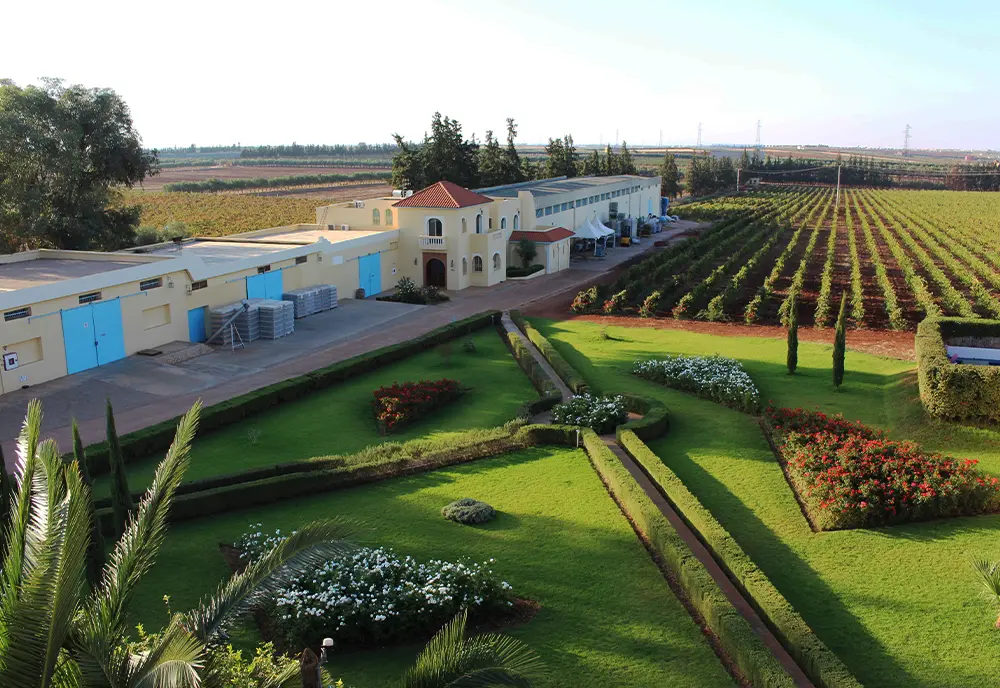
The oldest winery is Domaine des Ouled Thaleb, which was founded in 1927 at Ben Slimane by Belgian investors. Thalvin became owners in 1968. Then in 2001, they were purchased by the Zniber Group, but still market their brands independently. They produce Tandem, which is arguably the most famous, highest profile Moroccan brand. It is known as Syrocco in the USA. If there is one Moroccan wine you will see on an international wine list, this will be it. The recently deceased Alain Graillot, an icon of the Northern Rhone, was on a cycling holiday in Morocco when he came across a vineyard planted with Syrah. This prompted the idea to produce a Moroccan Syrah, which he did in a joint venture with Thalvin-Ouled Thaleb. His son continues this today and the wine is distributed by the French side of the partnership. I recently tasted the Tandem 2018, which is already exported to Israel. It was vibrant, juicy, meaty with the warmth from the Moroccan sun. It shows the quality and gives a window into the potential of Moroccan wine.
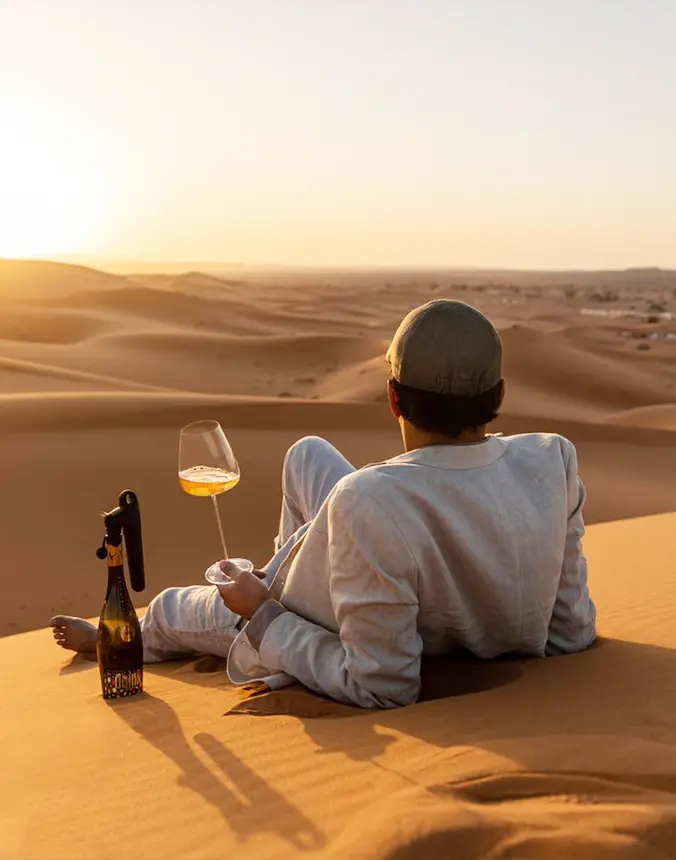 The finest of the other wineries are Le Val d’Argan, Domaine de la Zouina and Domaine de Baccari. Le Val d’Argan is situated on the coast near Essaouira. It is the most southerly and westerly winery in the Mahgreb. The visionary behind this is Charles Melia, a Frenchman with North African roots. He owns Chateau de la Font du Loup in Chateauneuf-du-Pape. He founded the winery in 1994. He focused only on Rhone varieties and so was a pioneer of both a new terroir and a new style of wines. The reds, particularly the Orian label, are expressions of Rhone varietals.
The finest of the other wineries are Le Val d’Argan, Domaine de la Zouina and Domaine de Baccari. Le Val d’Argan is situated on the coast near Essaouira. It is the most southerly and westerly winery in the Mahgreb. The visionary behind this is Charles Melia, a Frenchman with North African roots. He owns Chateau de la Font du Loup in Chateauneuf-du-Pape. He founded the winery in 1994. He focused only on Rhone varieties and so was a pioneer of both a new terroir and a new style of wines. The reds, particularly the Orian label, are expressions of Rhone varietals.
Two French partners from Bordeaux, Gerard Gribelin, associated for decades with Chateau Fieuzal of Pessac Leognan, and Philippe Gervoson, who owns Chateau Larrivet Haut-Brion, fell in love with Morocco on a golfing holiday! They created the Volubilia partnership with Domaine de la Zouina in 2002, about 20 km south of Meknes. Volubilis is an ancient city founded by the Berbers, which contains Roman ramparts.
Today the wine estate is managed by Gerard’s son, Christophe. They have two main labels. One is called Volubilia, recognized by a metallic silver label and then the premium Epicura label of varietals. I have come across the Volubilia Rose, which is bright, refreshing, with gentle fruit and great acidity. I have not tasted so many roses from North Africa, but this is the best to date. They are also particularly well-known for their extra virgin Volubilia olive oil, which has won major awards, including as the world’s best. You can’t do better than that!
Possibly the most promising winery is Domaine de Baccari at 650 meters elevation, not far from Meknes. The first wine was launched in 2013. The winery employs the services of Stephane Derononcourt, one of the leading wine consultants in the world. He is a specialist of exotic regions also consulting in Turkey and Syria, and even for a very short time in Israel. The winery is owned by the dynamic Nahla Bahnini, for whom nothing but the best will do. Moroccan wine is fortunate to have her drive, attention to detail and passion. Their most celebrated wine is the Premiere de Baccari, a Syrah Cabernet Franc blend.
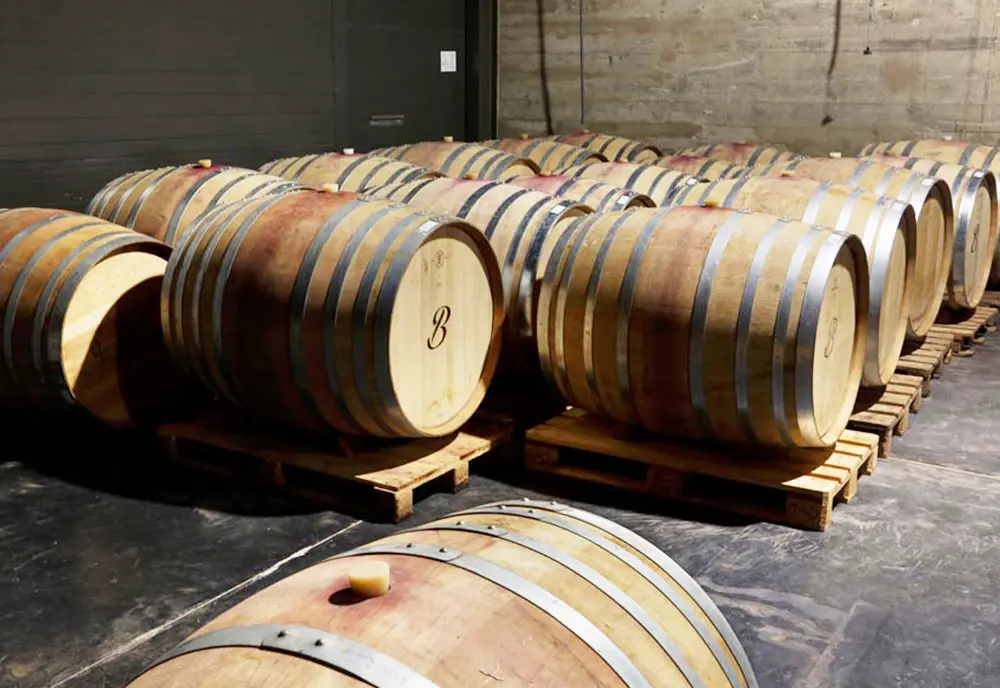
Other wineries you may come across include La Ferme Rouge, Les Domaines Amal and Les Deux Domaines. Jacques Poulain, Morocco’s highest profile winemaker, makes the wine at La Ferme Rouge. He previously worked at Thalvin. He makes his wine in the Rommani coastal region at 450 meters elevation and not far from the Atlantic Ocean. Then there is Domaine Amal, only founded in 2017, on the Zaer plateau about 55 km from Rabat. Finally Les Deux Domaines, is a joint venture between French actor Gerard Depardieu and Bordeaux stalwart, Bernard Magrez.
I was fortunate to speak with Michèle Astrom Chantôme, a truly legendary figure in the world of sommeliers, sommelier competitions and international sommelier organizations, whose fame and influence transcends far beyond the more parochial Moroccan wine industry. I asked her where Moroccan wine was going. She told me: “Twenty years ago no-one spoke about Moroccan wine, apart from a little about rose, but today the wines have become very good.” She explained the philosophy of winemaking was more geared to quality and elegance than before. The tragedy is that the wine world is relatively uninformed. Let’s hope Moroccan wine will overcome its shyness and cease hiding its light under a bushel.
Of the wines newly imported to Israel, these were my favorites:
Celliers de Meknes, Les Trois Domaines Gris 2021 This is made from Cinsault and Grenache. This is a classic Moroccan vin gris, simple but refreshing. Pale pink, a hint of berry fruit on the nose and a fresh, crisp acidity. It comes under the Geuerrouane appellation.
Ouled Thaleb, S de Siroua Syrah 2020 from the Zenata region, was vibrant, fruity, chewy and spicy. Not pretentious, but a nice drinking wine.
Chateau Roslane, Zayane 2017. The most interesting wine that has come to Israel is the Zayane, which is a joint venture between Chateau Roslane and Albert Costa, owner of Domaine Vall Llach in Priorat. In the days of the French protectorate, Carignan was the main grape planted, like in Israel, and this wine comes from an 80 year old vineyard in the Guerrouane appellation. This showed fruit of red berries and cherries, with a bit of dirt on the palate. It was complex and interesting.
Kosher wines are, have been or will be produced by Ouled Thaleb, Domaine de la Zouina and La Ferme Rouge. I have no idea if these are regular production, or one-off requests by individual customers. The main Kosher brand up to now is Rabbi Jacob, which I tasted once and it was pretty dire. However, I suspect, considering the quality of the wineries, some pretty good Kosher wines will be made, which will be of great interest to the American, French and Israeli markets.
Moroccan wines are better than they are given credit for, but the wine industry is shy and not very marketing savvy. It is not so easy to get information. Anyway, the wines coming to Israel is a start and we hope it will be the beginning of a long wine relationship between the two countries. Moroccan wine has arrived in a timely fashion. It will accompany the love of Moroccan cuisine that exists amongst all Israelis and the loyalty to Moroccan cultural traditions, by those with Moroccan roots. Yalla Morocco!
The writer is a wine industry insider turned wine writer, who has advanced Israeli wines for 35 years. He is referred to as the English voice of Israeli wine and is the wine writer for the Jerusalem Post. www.adammontefiore.com


